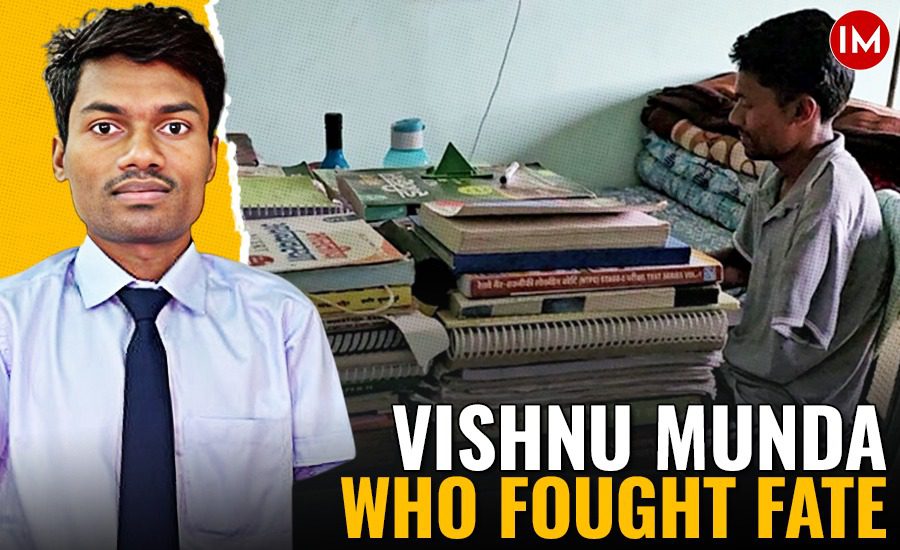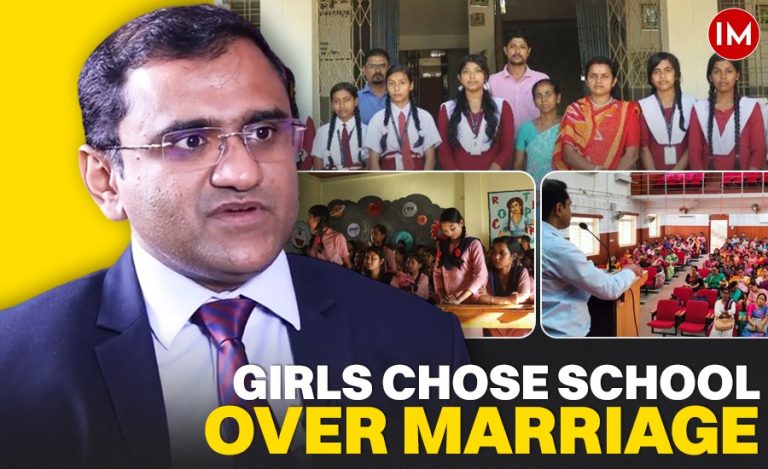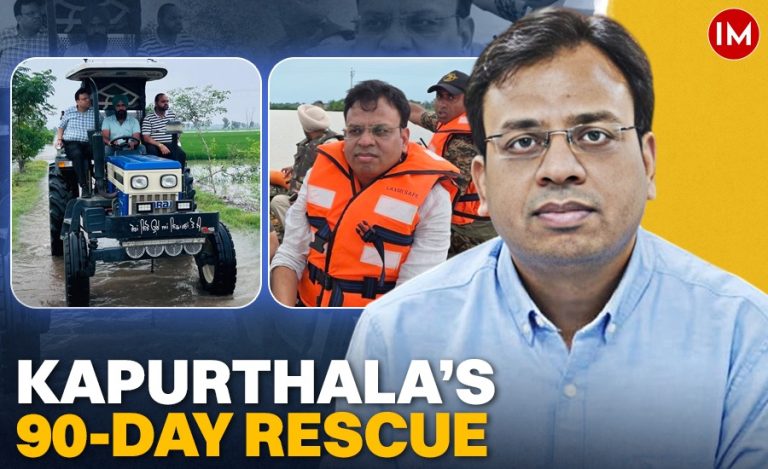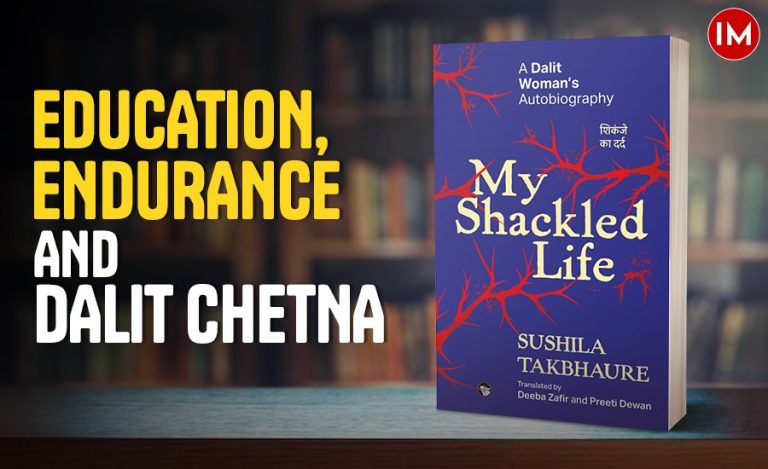Vishnu Munda was born in a small village near Tamar, Ranchi district, with one hand and a world of ordinary expectations waiting to be rearranged. The narrow lanes where he learnt to run, the pond where boys played and argued over catches, and the modest home where paddy was sown for survival — these were the settings of a life that would quietly redefine what a young man from Bundu-Tamar might achieve.
EARLY LIFE AND EDUCATION
School began three kilometres away at GEL Church Middle School, later upgraded to Gossner High School, where Vishnu finished his matriculation. From there he moved to Tamar Inter College for his intermediate studies and later to Kisan College, Bundu, where he completed an honours degree in chemistry. Along the way he did what thousands of rural youngsters do: he played. Cricket was not just a pastime for him; it was a bond with friends, a place where he felt equal and free. “If I didn’t study for a day, I felt suffocated,” he shared with Indian Masterminds about the single-minded devotion that later defined his routine. That intensity — more than any label — became the engine of his long journey.
FAMILY STRUGGLES AND SUPPORT
Vishnu grew up in a family tied to the land. His father farms mainly for household use, growing paddy and taking on small jobs when needed; his mother is a homemaker and has struggled with epilepsy, requiring regular medication and care. There are four siblings: three brothers and a sister. The family’s material means were limited, but they shared a quiet confidence in Vishnu’s potential. He speaks of his parents’ reaction to his result not with fireworks but with calm: when he called his father in the small hours after the result was published, his father’s voice was steady, as if he had expected this. “When I went home after the result was announced, I saw peace on his face,” Vishnu remembers.
TURNING POINT IN HAZARIBAGH
Government service was not the first dream on his list. He was inspired by his maternal uncles — men who held steady jobs in railways and other government departments — and at one point prepared for railway exams. His general studies were weak at first; mathematics and reasoning had been his strengths. A move to Hazaribagh for postgraduate studies and a hostel life opened new doors. It was there that a teacher at a coaching centre asked him why he was limiting himself to GS coaching when a full civil services programme was available. Vishnu took the step that would change everything.
The timetable that followed was simple and precise. He would rise at 5 a.m., study for three hours, return for a late breakfast, rest, and then study again in the afternoon and evening, squeezing errands and household chores in between. When exams approached, the hours stretched to 8–10 a day. The discipline was not born of punishment but of a hunger that made anything less feel like falling short. He calls it dedication, discipline and honesty — the three pillars without which he believes no student can succeed.
FACING CHALLENGES WITH PATIENCE
The road to JPSC success was neither short nor smooth. Vishnu cleared the prelims with a score comfortably above the cutoff for the general category, but his first attempt at the mains was derailed by a misstep: choosing Nagpuri as a second paper without sufficient local resources and mock tests meant long, disruptive travel and poorer preparation. He learnt the hard arithmetic of opportunity and access: one wrong choice, made for reasons he still finds understandable, can set you back years in an exam system where attempts come few and far between. It took him two attempts and eight years after his graduation to clear JPSC — a span during which patience had to be practised like a skill.
Living with one hand has shaped his story in obvious and subtle ways. There were moments of insensitive comments and whispered doubts from strangers, but within his circle — family, friends, teachers — he found constant support. His siblings worried; his mother’s health added strain; his father balanced fields and small jobs to keep the household steady. Friends watched, encouraged, and believed in his work ethic. “My friends always appreciated my hard work and believed I would succeed,” he told Indian Masterminds. For Vishnu, exam rooms were level playing fields: he wrote papers like everyone else and trusted that preparation mattered more than pity.
A MESSAGE FOR FUTURE ASPIRANTS
The achievement — Rank 282 in JPSC — is important not merely as a number but as a signal to the village and to boys who still play gully cricket without guidance. Five youngsters from his region clearing JPSC, he notes with quiet satisfaction, are already changing the atmosphere in nearby villages. He speaks of the missed opportunities that some of his seniors faced: talent that never found coaching, platforms or mentors. That, perhaps more than his own success, fuels his wish to change the ecosystem that shaped him.
There is tenderness in how he tells his family’s story. He did not burden his parents with every worry; they, in turn, tried to shield him from their hardships. His mother’s struggles with epilepsy were a constant background worry — a reality that required medicines brought in from Ranchi and steady vigilance. Yet when the news came, the family’s joy was sober and bright. His father’s calm acceptance felt like more than relief; it was the passing of faith from one generation to the next.
Vishnu refuses the idea that a rural background is a permanent handicap. His advice to students with abundant facilities who still feel blocked is simply framed: study honestly, follow a schedule, and cultivate a passion strong enough to make absence of study painful. He does not romanticise struggle; he offers a practical blueprint: regular hours, mock tests, and attention to small details that reduce avoidable mistakes.
He also keeps his youth close — the cricket matches, the friendly rivalries, the village culture that can both nurture and derail talent. Had he stayed in his village without the chance to study in Hazaribagh, he says, his love for the sport might easily have led him astray. Instead, that love became a part of his balance, something he returns to when time allows.
Vishnu Munda’s story is not presented as a parable. It is an account of choices, missed chances, support networks, and the slow accumulation of steady days. Born with one hand, raised on small family fields, and educated in modest schools, he navigated errors and late nights to reach a goal that now feels, to him and to his family, like the natural outcome of long, honest work. More than personal triumph, he hopes his success will open doors in Bundu-Tamar — better coaching, more guidance, and a belief that where you begin need not define where you will stop.
































